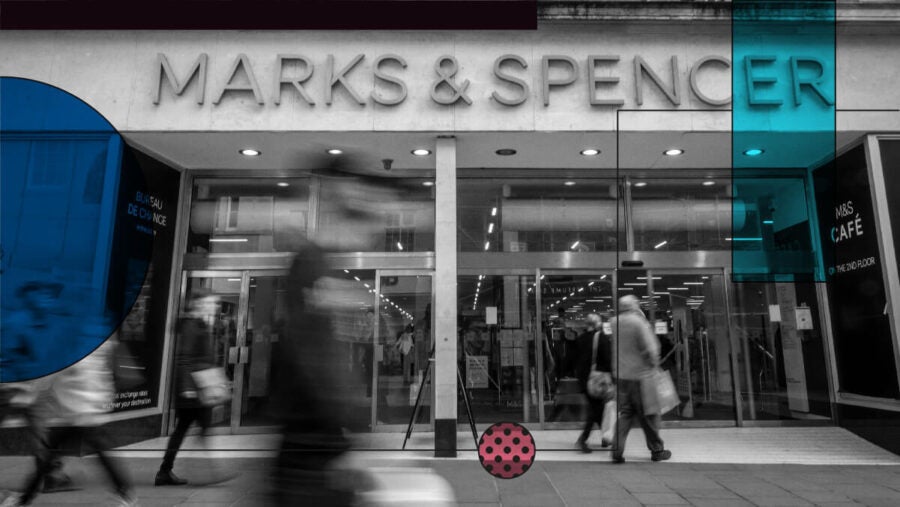
This is not just profit, this is M&S profit
Marks and Spencer posted its full-year results this week, with the food and clothing retailer recording pre-tax profits of £474.7m, up from £391.7m last year. This has led to the group’s share price rising by 11.7%, to 182p, representing a 46% increase over the past 12 months. According to Bloomberg, M&S Stock has outperformed every other retailer in both the FTSE 100 and 250. M&S now plans to reintroduce a “modest” dividend to shareholders from November, having suspended such payments at the start of the Covid-19 pandemic.
Chief executive Stuart Machin credits “sustained trading momentum” as key to the company’s success. He suggests that, despite the cost-of-living crisis, improved perceptions of quality and value mean M&S has remained a popular choice among consumers. And while inflation is high, which Machin admits has impacted the retailer “more than we’ve ever experienced”, he hopes the outlook will have improved by the autumn.
The true cost of inflation
Bank of England decision-makers are expected to raise interest rates once more as they struggle to tame the UK’s stubbornly high inflation rate.
While the consumer price index (CPI) registered a drop to 8.7% for April, the figure was higher than economists expected. Plus, core inflation – which strips out more volatile food and energy prices and is closely watched by the central bank when considering interest rates – rose to 6.8%, from 6.2% last month.
Markets are now anticipating that the base rate will hit a peak of 5.5% this year, its highest level since December 2007. This means businesses will likely have to brace themselves for yet another rise in borrowing costs as the Bank of England looks to bring inflation closer to its 2% target.
A £1bn blow to the Meta purse
Facebook parent company Meta was fined €1.2bn (£1bn) for violating EU privacy rules, the largest penalty any company has faced since GDPR laws were introduced in 2018.
Ireland’s Data Protection Commission determined that the company had not used sufficient safeguards when transferring users’ data between Europe and the US. EU regulators fear that the US’s less stringent privacy laws could leave individuals’ personal information exposed to the country’s surveillance programmes.
It represents a costly mistake for Meta, which claims the decision is “unjustified and unnecessary” and plans to appeal the fine. It also serves as a useful reminder for other global companies, which increasingly handle large and complex sets of data, about the risks they face when transferring user information across borders.
Target misses the mark with Pride products withdrawal
US discount retailer Target has withdrawn some Pride-themed products from sale in certain stores and is moving others to less visible positions following complaints from some customers, as well as threats made against its staff and aggressive posts on social media.
The group, which sells food, clothing and homeware, had launched a range of around 2,000 items featuring rainbow motifs and slogans in support of the LGBTQ community during Pride Month, which is celebrated internationally in June.
Many companies, including Target, have run similar initiatives in the past to express their solidarity with LGBTQ people. But in 2023, against the backdrop of the so-called culture wars, these ostensibly well-intentioned and inclusive campaigns are being met with more pushback from certain sections of consumers. This pushback appears to be more pronounced in the US where, according to a 2022 study by Morning Consult, less than half (40%) of heterosexual consumers were in favour of the release of outwardly Pride-themed merchandise.
Disappointingly, rather than increasing its own security measures, Target appears to have prioritised the preferences of this small subset of customers by moving its LGBTQ-friendly displays either to the back of its stories or removing them entirely. This response is similar to that of Bud Light-brewer AB InBev, which instead of recognising evolving cultural expectations and attitudes, recently opted to distance itself from a promotional video featuring the transgender actress Dylan Mulvaney.

This is not just profit, this is M&S profit
Marks and Spencer posted its full-year results this week, with the food and clothing retailer recording pre-tax profits of £474.7m, up from £391.7m last year. This has led to the group’s share price rising by 11.7%, to 182p, representing a 46% increase over the past 12 months. According to Bloomberg, M&S Stock has outperformed every other retailer in both the FTSE 100 and 250. M&S now plans to reintroduce a “modest” dividend to shareholders from November, having suspended such payments at the start of the Covid-19 pandemic.
Chief executive Stuart Machin credits “sustained trading momentum” as key to the company’s success. He suggests that, despite the cost-of-living crisis, improved perceptions of quality and value mean M&S has remained a popular choice among consumers. And while inflation is high, which Machin admits has impacted the retailer "more than we've ever experienced", he hopes the outlook will have improved by the autumn.
